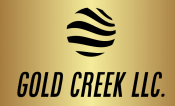This post was originally published on this site
A journalist who moonlit as a Starbucks barista for a day recently shared everything she learned while working at the world’s largest coffee chain — reeling off a list of what she “found out” during her time at one location.
While not all of the journalist’s “discoveries” can be found at every single shop, the Seattle-based restaurant was founded in 1971 and, at the time, did not even sell brewed coffee – just beans, teas and spices for customers to use at home.
Starbucks recently reversed its open-door policy and will soon require patrons to make a purchase if they wish to use a restroom or hang out in the store. News of the policy change was met with a host of reactions online, with many Starbucks employees celebrating on Reddit.
DRINKING COFFEE AT A CERTAIN TIME OF DAY COULD REDUCE DEATH RISK, STUDY FINDS
Here are five other things about the coffee chain that might come as a surprise.
Most drinks at Starbucks come in three sizes: “tall,” “grande” and “venti,” in ascending order.
But there are other options for certain drinks. The smallest of these is the “demi,” which is just 3 ounces – and just for shots of espresso.
The next smallest is the “short,” at 8 ounces.
It’s also called the “kids” size for hot chocolate, but any hot drink can be ordered as a “short.”
AT-HOME ‘MEDICINE BALL’ TEA, SOOTHING AND WARM, COULD HELP KICK A COLD
The largest size, the “trenta,” is only for iced drinks. As the name suggests, the trenta is 30 fluid ounces.
Any hot beverage order can be made at “kids temperature,” which means it will come out at 130 degrees Fahrenheit.
A standard hot drink is served at 160 degrees, according to multiple reports.
An “extra hot” drink is served at about 170 or 180 degrees.
Most Starbucks employees, whom the company calls “partners,” wear a green apron.
NEW YEAR FOOD AND DRINK TRENDS INCLUDE COCOA, FLOWERS AND ONE TYPE OF BEER
But some wear black, tan or red aprons or have special symbols embroidered on them.
Those with American flags embroidered on their aprons are either veterans or the spouse of someone in the military, according to the Starbucks website.
Those with a mortarboard have graduated from college thanks to the Starbucks College Achievement Plan.
At “Signing Stores,” Starbucks employees who are deaf and use American Sign Language have ASL fingerspelling on their aprons.
DRINKING CERTAIN TYPES OF COFFEE CAN BRING SOME HEALTH BENEFITS, BUT THE ADD-INS MATTER
A black apron means that a Starbucks employee has been “certified for their coffee knowledge,” the company’s website said, and tan aprons are the “Starbucks Reserve and Roastery Aprons.”
Red aprons mean it’s almost Christmas.
“To help spread some holiday cheer, partners wear their red aprons when the holiday season arrives,” the Starbucks website said.
At the vast majority of Starbucks restaurants, a customer’s name is either written or printed on the cup after he or she orders.
Not so at the Starbucks location at the headquarters of the Central Intelligence Agency in Langley, Virginia.
CLICK HERE TO SIGN UP FOR OUR LIFESTYLE NEWSLETTER
The location, which the CIA’s website boasts as “one of the busiest” in the country, has a standard Starbucks menu.
It features “a comfortable seating area for officers to take a break, hang with a co-worker or talk shop … as long as the conversations are unclassified, of course.”
For more Lifestyle articles, visit www.foxnews.com/lifestyle
But no names are allowed.
“Our officers order their cup of joe incognito,” the CIA’s website said.
It’s actually a siren – another half-woman, half-fish creature from folklore.
The one on the Starbucks logo has two tails.
“While scouring old marine books, a mysterious, nautical figure called to them, a twin-tailed siren,” the Starbucks website said.
The siren was chosen as the logo for a multitude of reasons, including another nod to “Moby Dick,” the book that inspired the chain’s name.
Additionally, “Seattle is a port city, and coffee often travels long distances across the water to get to us,” Starbucks said.




